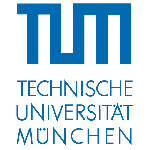ABOUT US




The agricultural sector face two major challenges: water scarcity and climate change. The current agricultural model must adapt to these challenges and move towards conservative agriculture with the implementation of new agricultural practices and technologies that ensure maximum performance in the application of resources. Faced with these future prospects, CICLICA proposes an alternative production system where traditional crops with added value go from being cultivated with sustainable agricultural practices and management and new adapted technologies. The objective of CICLICA project is to ensure the strengthening of Mediterranean agricultural systems based on agroecological principles with adapted species, solving the growing pressure due to the degradation of natural resources and the effects of climate change. The project is ambitious because of the combination of techniques/technologies and nano-biotechnology has not yet been tested in real situations for use in this type of crop. This approach will result in a better understanding of the short- and long-term effects of using unconventional water resources in irrigation and will be a key challenge in promoting the expansion of agricultural water reuse in rural areas and autoctonous crops, ensuring the sustainability of the field and food security.













